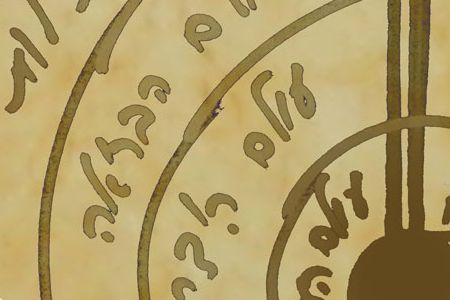Numbers 8:1-12:16
This Week’s Torah Portion | Jun 08 – Jun 14, 2025 – 12 Sivan – 18 Sivan, 5785
In A Nutshell
The portion, BeHa’alotcha (When You Raise the Candles), takes place a year after the reception of the Torah. The people of Israel is getting ready to journey and holds a special ceremony for the inauguration of the altar. The portion details the laws concerning making the offering of Second Passover for those who were far and could take part in Passover.
The portion speaks of the tabernacle, on which there was constantly a cloud. It is an indication to the children of Israel when they must rise and journey, and when they must settle down. The portion also tells of the two silver trumpets that were used to assemble the people at times of war, when making an offerings, on Sabbaths, festivals, and special occasions.
Toward the end of the portion, several events take place that point to the heightening of the ego. The wicked in the nation complain about Moses and the Creator, and a consuming fire is sent to the wicked at the camp’s edge. The rabble, who is a group of proselytes that joined the children of Israel upon their exit from Egypt, complains about their condition, and the Creator showers quails on the camp. Anyone who jumps on the quails voluptuously is put to death. This is why the place is called “the graves of voluptuousness.”
The end of the portion talks about Miriam—Moses’ and Aaron’s sister—slandering Moses. She says to Aaron, “The Creator appeared to me, as well as to you, so why is Moses the leader? Why are we listening only to him?” She is punished for it with leprosy, and the nation waits for seven days until she returns.

Commentary by Dr. Michael Laitman
All the events are spiritual states within us. Each person needs to correct him or her self and achieve equivalence of form with the Creator, as it is written, “Return, O Israel, to the Lord your God” (Hosea 14:2). The text speaks only about correction. It is not about having to cross the desert and reach the Jordan River, cross it, and reach the land of Israel. Rather, it is about ascending, as in BeHaalotcha (When You Raise).
Ascending refers to building the soul. Each of us builds his or her soul. We gradually build the soul—called “a portion of God from above” (Job 31:2). One begins the spiritual work, wanting to build oneself and achieve bestowal and love of others, connection with everyone, because by these acts one becomes similar to the Creator, as it is written, “From the love of man to the love of God,”[1] from loving of people to loving the Creator.
We achieve the love in stages, although we hate it because we are the complete opposite of it. These are the stages described in all the portions. To begin with, the Torah speaks only about a person receiving the spark called the “point in the heart.” With that spark we begin to correct ourselves. The Torah describes the way we go until the end of correction, through what is called “in the sight of all Israel” (Deuteronomy 34:12), through the end of the Torah (Pentateuch).
Continue reading “BeHa’alotcha (When You Raise the Candles) Parsha – Weekly Torah Portion”
